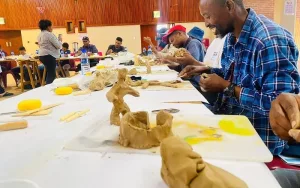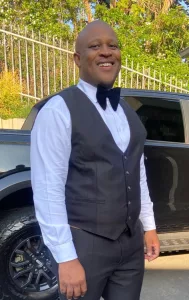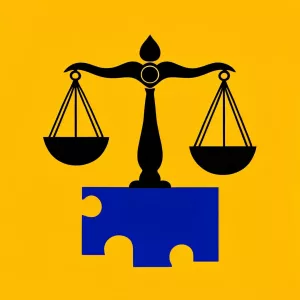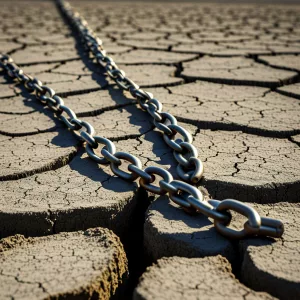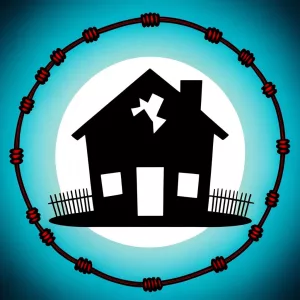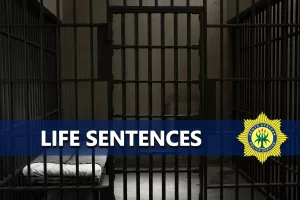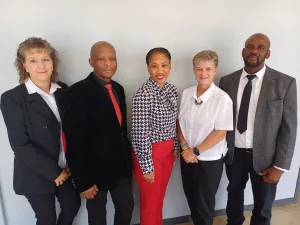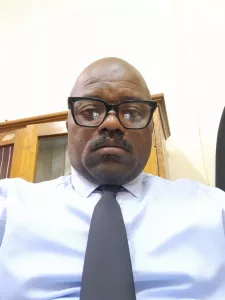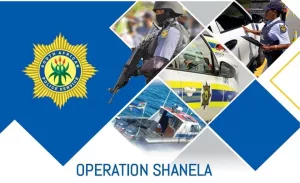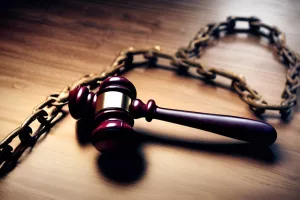In South Africa, the fight against genderbased violence and femicide is a major focus for both the government and community groups. Special police units, like the Family Violence, Child Protection, and Sexual Investigations Unit (FCS), work hard to investigate crimes and support victims. Victim Friendly Rooms in police stations provide a safe space for survivors to report incidents without fear. Despite these efforts, the battle continues as many women and children still face violence, highlighting the need for ongoing awareness and action to create a safer society for all.
In Cape Town, the “Fatherhood for the Future” workshop brought fathers and sons together to talk openly about important issues like genderbased violence. Over two days, they used art to express their feelings and rethink what it means to be a man. The workshop aimed to break down old ideas about masculinity and create safer, kinder family relationships. Participants left inspired, ready to make positive changes in their lives and communities, showing that small actions can lead to big differences. This event is just the beginning of a hopeful journey towards a more compassionate future.
Sergeant Edward Mndeni Mzila is a brave detective in KwaZuluNatal, fighting against terrible crimes like serial rapes and online predators. He uses science and smart thinking to solve tough cases, such as catching the ‘Durban Highway Rapist’ and another criminal who lured victims through Facebook. Mzila’s work not only brings justice but also gives hope to those who suffer from violence. With his passion and skill, he shows that protecting the community and standing up for the vulnerable is a mission worth pursuing every day.
Lieutenant Colonel Nondumiso Mabaso is a shining hero in the fight against genderbased violence in South Africa. Working in the Family Violence, Child Protection, and Sexual Offences Unit, she helps victims find their voices and fights for justice. With her compassion and expertise, she has helped put many offenders behind bars, including those who have harmed children. Mabaso believes that everyone in the community shares the duty to protect the vulnerable, spreading hope and inspiring action to create a safer world for all. Her work is a powerful reminder that together, we can make a difference.
When Justice Falters: The Cwecwe Case and South Africa’s Ongoing Struggle With Gender-Based Violence
The Cwecwe case shines a harsh light on South Africa’s struggle to protect children from genderbased violence. It shows how the justice system often demands hard proof, like physical evidence, that is rarely found in abuse cases, especially when trauma makes it hard for young survivors to tell their stories clearly. Despite laws meant to help, many survivors face disbelief and frustration. The case calls for deep changes better training, more care, and a system that truly listens to and supports survivors, helping the nation move toward real justice.
Reimagining Gender Justice: Parliament’s Careful Examination of the National Council on Gender-Based Violence and Femicide Act
Parliament’s Portfolio Committee is carefully reviewing the National Council on GenderBased Violence and Femicide Act to make sure it truly protects women, girls, and genderdiverse people. They want to create a strong, efficient Council that can act quickly and include voices from civil society without getting bogged down in bureaucracy. The Committee is focused on clear timelines and real accountability, determined to turn promises into real safety and justice. This careful work shows South Africa’s deep commitment to fighting genderbased violence now and for the future.
Shauna Rhoda bravely shared her story after surviving violent abuse by a police officer in South Africa. Instead of hiding her pain, she spoke out loudly, shining a light on the failures of the justice system and the deep roots of genderbased violence in her country. Her words sparked a wave of support online, connecting survivors and pushing for change. Shauna’s courage stands as a powerful call for justice, hope, and a future where no woman suffers in silence.
Shadows of Betrayal: The Thembalethu Gqeku Case and the Crisis of Trust in South African Policing
Thembalethu Gqeku, a South African police officer, was found guilty of raping a 17yearold girl inside a police station—turning a place meant for safety into a scene of betrayal. This shocking case exposed deep problems of trust, silence, and abuse within the police. Although justice was eventually served with a 20year sentence, the survivor’s pain and mistrust reveal the urgent need for real change in how law enforcement protects and supports victims. The case shines a harsh light on the fight to clean up police culture and build a safer future for all.
Anele Mdoda, a popular radio host, had a scary experience during an Uber ride in Cape Town. She used a feature to ask her driver not to talk, but the driver made an inappropriate comment about sexual violence. Anele shared her feelings on Instagram Live, shining a light on safety issues and how technology can help or hurt us. Her story highlights how important it is for everyone to feel safe in public spaces and reminds us that we need to be aware of how we use ridesharing apps.
The legacy of forced removals in South Africa, especially during apartheid, leaves deep wounds in the nation’s heart. Communities like Sophiatown were torn apart, leading to economic struggles for the displaced. As South Africa works towards healing, it aims for justice and equality for all its people. With a commitment to combating corruption and protecting the vulnerable, the country moves forward, determined to create a brighter, united future where everyone can thrive.
In Embalenhle, South Africa, a dark nightmare unfolded as Themba Prince Shongwe committed terrible crimes, including rapes and murders, from 2016 to 2018. The community lived in fear as he targeted innocent girls, causing heartbreak and loss. Finally, justice was served when he was found guilty and sentenced to nine life terms in prison, bringing relief to the grieving families and a sense of safety back to the community. This victory shines a light on the importance of standing against violence and working together to protect the vulnerable.
Colonel Celeste van der Klashorst is a fearless leader in South Africa’s fight against violence and crime, especially those targeting women and children. With over thirty years of service, she created Child Protection Units and now leads the National SECI Unit, tackling serious issues like serial rape and child pornography. Her team’s recent success in a major operation has led to arrests and rescued children, showing the powerful impact of her work. Colonel van der Klashorst inspires others with her passion for justice, making her a shining example of hope and resilience in the battle for a safer society.
Champion of Justice: Sergeant Pule Morake’s Battle Against Gender-Based Violence in Wolmaransstad
In the small town of Wolmaransstad, Sergeant Pule Morake is a shining hero against genderbased violence. With fierce determination, he investigates crimes and helps victims find their voices. His biggest success came when he helped put a serial rapist behind bars for life, showing that justice can prevail. Morake inspires the community to stand together, reminding everyone that fighting against violence is a shared responsibility. His work fills the town with hope for a safer future where women and children can live without fear.
The South African Police Service (SAPS) is taking strong steps to fight crime and keep communities safe. Their big operation, OPERATION SHANELA, led to over 13,000 arrests in just a week, targeting serious crimes like murder and rape. SAPS is also focusing on issues like genderbased violence and drug crimes, with many arrests made for these offenses. With efforts to tackle illegal immigration and improve road safety, SAPS shows a commitment to protecting the public and creating a safer South Africa. Their teamwork and determination in the face of challenges highlight the spirit of resilience in the country.
In today’s world, enjoying art can be tricky when the artist has a troubled past. Professor Mamokgethi Phakeng faced backlash for deciding to attend a Chris Brown concert, even as she supports ending genderbased violence. Critics called her a hypocrite for enjoying music from someone accused of serious wrongdoings, yet she argued that liking the art doesn’t mean she supports the artist’s actions. This situation sparks important questions about how we balance personal enjoyment with our responsibilities to society, pushing us to think deeply about how we engage with art and the messages it sends.
A bright new hope for justice has emerged in South Africa as a recent court ruling changes the way consent is viewed in cases of genderbased violence. The Pretoria High Court declared parts of the Sexual Offences Act unconstitutional, shifting the responsibility of proving consent from victims to the accused. This breakthrough aims to better protect victims and ensure fairness in the justice system. With the backing of the Embrace Project, this ruling represents a significant step forward in the fight against genderbased violence, igniting a powerful movement towards equality and justice in the nation. As South Africa navigates this crucial moment, there is a renewed call for change that champions the rights and dignity of all.


